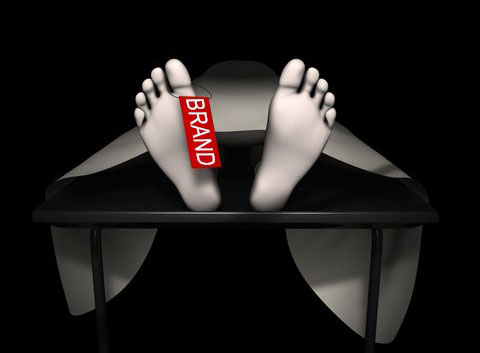Brands are alive. They breath. They require attention and nourishment. In fact, your brand is the driving life force of your business. The healthier it is, the more trust it has, the more loyal brand evangelists you’ll gain, and the more enhanced your bottom-line will become.
However, there are those who think they can achieve great branding by learning to do it themselves. (You know, read some articles, copy someone whom you think is “doing it right,” etc.) But the reality is that bargain-basement branding is a surefire way to erode trust with your customers, decrease your customer base, turn away prospects, and…well, you get the picture.
5 Brand-Killing Hacks:
- Shoot from the hip with your messaging.
Who needs strategy, right? Don’t waste your time or money researching and planning. Why would you want to cultivate a relationship with your customer? Disregarding this will save you a lot of time. - Tell the same story as everybody else.
“We’re the best!” “Quality is our middle name!” “New and improved”. Whatever you do, don’t make it meaningful or significant. Resist the temptation to cultivate one brand voice. Keep mute on how it’s different from your competitors. Hide the passion behind your business’ launch and refrain from demonstrating and promoting this passion anywhere at any time. And by all means, don’t ever discuss how it benefits the consumer and their community. - Don’t bother trying to connect with a prospect.
You just want to sell a product not really talk with them. You’re not interested in relationship anyway. So keep any shared values and vision to yourself. Stay away from engaging with them where they live, especially on social media. Resist spending energy and resources sharing your story and educating and involving your customer in the process. - Hire your friend’s nephew who’s in college.
This will go a long way in helping him with his senior project and getting his degree...at your company’s expense, of course. The nephew can help you with all sorts of marketing projects like “designing” and building your own website, collateral, planning, and more. Don’t be baited into hiring a professional, who can get to the heart of your story, target your prospect, and convey your unique message and shared values. Understand that professional brand marketing skills—discovering, researching, analyzing, planning, executing, and supporting—and all the marketing tools of the trade, are waaaay over-rated. Besides, you’re helping a future marketing professional that some day may help other businesses actually reach their potential. Don’t linger on that irony. - Ignore social media.
It’s a time sucker anyway and kind of gets back to that whole relationship/trust thing. You don’t need to listen to your targets and what they are saying, they need to listen to you. After all, you’ve got something fantastic to sell them. Remember it’s not about them, it’s about you. It’s a monologue NOT a dialog. They need to help you out...you’ve got bills to pay. Don’t be burdened with the hassle of trying to figure out what they want. They should know.... It’s your product. Besides, they know where to find you.










